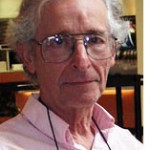Einstein’s Pacifism and World War I by Virginia Iris Holmes. Syracuse University Press, 2017, 332pp.
By David Strom

SAN DIEGO — “Where have all the idiots gone? Gone to government, every one.” (This verse is a parody on the anti-war song “Where Have All the Soldiers Gone?”). If Einstein was alive today, I am certain he would sing the “Idiots” have gone to government version.
Einstein witnessed the horrors of WWI with all the hatred and brutality visited on the “other” that was targeted as the enemy. He felt the pain of hunger and witnessed the death of thousands of civilians by starvation and disease. He was intellectually shocked by the nationalism that his science colleagues displayed, who he thought would not be swept up by the propaganda of the government and the warmongers. Einstein, along with just two others, took the bold steps to speak out for peace, while most of the other scientists went along with the conservative nationalists.
While not yet the world-famous man in 1914-18 that he was to become, Einstein was developing his lifelong pacifist outlook on war and justice. He would/could not separate justice from pacifism. In his view, without the two pacifism and justice there is no chance of peace.
Another lesson he was learning was the importance of an international government that could use moral suasion to keep the world free and peaceful. He favored the League of Nations and Wilson’s 14 Points. Einstein held out the hope that eventually the United Nations would end the supra-nationalism infecting the world. His hopes for a triumph of peaceful resolution of conflicts over nationalism remain unrealized, as we witness currently with President Trump’s recent speech before the United Nations.
Einstein urged young men not to join the armed forces. To him the military was a tool of the rich to maintain their hold over the working classes of all societies. When WWI ended, war didn’t end for the Russians who were having their own revolution in overthrowing the Czar and then the Kerensky government. The revolutionary spirit spilled over into Germany where rightists murdered Rosa Luxemburg and other members of the Spartacus League. Einstein believed that pacifism cannot exist without economic justice for all. He protested the murders of Luxembourg and so many others and was shocked at how little many of his countrymen had learned from the devastation and violence of the war.
By the time the Nazis took over Germany, Einstein was a world renowned figure. He saw the stripping away of citizenship of the Jews and the imprisonment of the communists and socialists in concentration camps. Many other dissidents were shot on the streets in broad daylight with no repercussion to the shooters.
In 1940, Einstein and his wife emigrated to the U.S. That same year he wrote a letter to President Roosevelt urging him to look into the creation of an atomic bomb. Einstein worried that the Nazis were working on the bomb to use to gain control of the world or destroy it.
As a famous pacifist, socialist, intellectual dissident and as a Jew, he was not allowed to work on the atom bomb. He was considered a security risk. After the US destroyed two cities and killed hundreds of thousands of Japanese civilians, Einstein became a vocal opponent of atomic bombs.
Einstein was proud of his Jewish heritage. In Germany during the Nazi era he spoke out against the totalitarian regime’s anti-Jewish laws. Before the existence of Israel he worked for the creation of Hebrew University. Once Israel was established he was asked to become the head of the Hebrew University. He turned down the invitation. As a Jew, he was proud of his heritage, glad Israel offered him leadership of Hebrew University, and he worked to strengthen Zionism among Jews throughout the world.
Even though he supported WWII, he considered himself a lifelong pacifist. How can this be? Read the book Einstein’s Pacifism and World War I, by Virginia Iris Holmes to explore this contradiction. The book is an interesting and well-researched treatise on the complex and nuanced philosophy of this great Jewish scientist.
Where have all the idiots gone? Gone to the White House, every one. When will WE ever learn? When?
*
Strom is professor emeritus of education at San Diego State University and a freelance writer. He may be contacted via david.strom@sdjewishworld.com